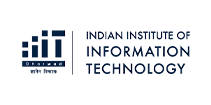Online Education: Reliable or Not? Exploring Its Impact on Modern Learning
This is the era of modern education, aka digital education!! Due to technology’s rapid advancement, as well as changes in the needs of modern society, learning environments are shifting towards a much more accessible and flexible format. Online education is not a novel concept, but it has finally reached its turning point. Our ancestors could only fantasies about how education looked in the 21st century, but now, in the present, we are living it! Online education is not just a supplement but an integral part of modern learning.Furthermore, with the help of online education, students across the globe have the ability to attend lectures, take part in workshops, and apply for courses from all over the world without the need to relocate or travel, which helps mitigate expenses.
Most traditional forms of learning have some limitations, and online education is no different. In comparison to traditional classroom education, online learning is much more flexible, which makes it more competitive than other traditional forms of education. Students can balance family, work, and other commitments while progressing through the coursework at a pace that is suitable for them. This form of education is particularly beneficial for adults looking to upskill or reskill themselves.
In this blog, we will discuss the entire journey of online education- how it was introduced and transformed the overall education system. We will also discuss the benefits and the limitations of this mode of learning and how you can make the most of it.
The Rise of Online Learning: A Brief History

From Correspondence Courses to MOOCs
The concept of distance learning can be traced back to the 19th century with the advent of correspondence courses. These early remote education formats allowed students to receive lessons and assignments through the mail. They made learning accessible to those who could not attend traditional schools. Today, we have seen the evolution of education into the digital age with platforms such as Massive Open Online Courses (MOOCs). These platforms offer free and diverse educational opportunities from top universities worldwide. MOOCs make it possible for anyone with an internet connection to access a vast library of knowledge. It's like having a world-class education at your fingertips, available anytime and anywhere, breaking down geographical and financial barriers.The Pandemic Effect
The COVID-19 pandemic propelled online education into the limelight like never before. It forced educational institutions of all types—primary, secondary, and postsecondary, to immerse themselves in virtual instruction. In this pandemic, the sudden need for online education rose, and many of the institutions that had previously resisted its embrace quickly turned to it as a lifeline. The pandemic may be the reason for that turn, but technological advancements are behind the success of online education. They see the move to virtual instruction as an opportunity to innovate, bring to bear new technologies, and engage with a curriculum that might be even more relevant to student’s lives than it was before.Comparing Online and Traditional Education

| Features | Online Education | Traditional Education |
| Flexibility | The unmatched flexibility of online education is one of its most significant advantages. As long as they have internet access, students can learn anytime and anywhere. This enables them to create a personalized study schedule and balance studies with other responsibilities. | In traditional education, classes are held at set times and in specific locations. This structure demands that students follow a relatively rigid timetable. |
| Cost | Virtual learning is typically more economical than traditional learning. The university expenses, travelling expenses, resources expenses and relocating expenses get eliminated in this form of learning. | Campus learning is costly; it requires a lot of money to pay for the facilities used. Tuition charges usually compensate for the space taken up physically. Also, relocation can be comparatively costly. |
| Networking | Online education allows students to build worldwide connections. It is possible to meet and make contact with different kinds of people and peers in the virtual world. | In-person learning offers the opportunity to create a local network. Students can gain all the benefits of "in-person" interaction. |
| Interaction | Although online education offers many benefits, it lacks deep interactions as it is limited to virtual interactions only. | One of the key advantages of traditional learning is the richness of face-to-face interactions. In-person classes allow students to engage in real-time discussions, group projects, and hands-on learning experiences that can enhance their understanding and retention of the material. |
| Accessibility | The global reach of online education is possible because of the Internet. Internet accessibility allows the online learner to participate in an educational experience, irrespective of physical boundaries. | Standard education is tied to specific localities. It offers less reach or accessibility because of the restricted place and people. |
Benefits of Online Education
The opportunity to learn without boundersThink of studying in a class without the constant worry of commuting or proximity limitations that come with traditional education. Pretty appealing, right? Education that is pursued online eliminates these hindrances, giving the privilege of taking courses from literally any part of the globe while sitting in the comforts of your home or travelling overseas.
Have you taken online courses while enjoying the fragrance and atmosphere of a cafe or while enjoying a coffee? This type of flexibility makes this education more appealing and stress-free.
Learning Tailored Just For You
The emergence of online learning has made it possible for courses to suit students with different learning needs and habits. If you are the kind of person that learns best through seeing or, more listening, rest assured there is plenty made for everyone. This kind of engagement with learning ensures every student gets the most out of the material they are provided.
Cost-Effective Solutions
There are numerous expenses tied to traditional education such as tuition fees, textbooks, travel, and much more. Learning online, on the other hand, is always available at a fraction of these costs. This means that more people will have access to quality education that they can afford. This is beneficial to a great number of people who would not be able to take up higher studies otherwise.
Challenges of Online Education
Distractions and Screen FatigueYour productivity can be negatively interrupted if you use a desktop computer or mobile phone for a long time, as it causes fatigue and distractions. How do you balance your screen use with your productivity and overall health? You can use timers to get off the screen and take occasional breaks. Also, there are apps that restrict distracting activities while you are working or studying.

Quality Control Issues
You must understand that people offering online classes may not do so to the same degree of professionalism. There are multiple ranges of courses that appear interesting, but every course or program does not provide quality content and effective knowledge, which can make you easily. That's why it is crucial to identify the best program or university to get certifications or degrees so that your studies can be counted!
Dependence on Technology
Online education is dependent on technology, which limits its benefit to devices like laptops, stable internet connections, and software platforms. This can become a problem for those people who live in places where the connection is not stable. Even if they have an internet connection, there are connectivity issues. This can become one of the primary reasons for the lack of online education.
The Reliability of Online Education
- Accreditation and Credibility: To ensure the reliability of online education, students should prioritize platforms and programs accredited by recognized educational bodies. Institutions like edX, Coursera, and Khan Academy have partnered with top universities to offer high-quality, accredited courses.
- Proven Success Stories: From tech CEOs to successful entrepreneurs, many professionals credit online learning for their growth. The success of these individuals underscores the potential of online education when approached with commitment and care.
- Advancements in EdTech: Emerging technologies like AI, AR/VR, and gamified learning are enhancing the reliability of online education by making it more engaging and interactive.
Real-World Impact of Online Education
- Upskilling for Career Growth: Online certifications in data science, digital marketing, and cybersecurity bridge the skills gap, enabling professionals to remain competitive in the job market.
- Educational Equity: By offering affordable learning opportunities, online education empowers underprivileged communities to access quality education.
- Lifelong Learning: Online platforms cater to learners of all ages, promoting a culture of continuous learning that extends beyond formal education.
Tips for Managing Online Education
- Choose the Right Platform: As you embark on your online learning journey, it is of utmost importance to choose e-learning platforms that are credible and reliable. You want platforms that have a good reputation earned through positive reviews from former learners, platforms that offer course content, and those same platforms that deliver it in a manner consistent with the stated learning objectives.
- Create a Dedicated Study Space: To sharpen your concentration and increase your productivity, set up an uninhibited and well-organized study space. Freedom from distractions means your full attention can go to your coursework, which makes for better and more efficient learning. And while you're at it, consider seating that you find comfortable, lighting that is not a burden on your eyes, and necessary materials you can reach without getting up.
- Set Clear Goals: Clearly define the aims of your learning so that they can provide unambiguous guidance and a sense of purpose for your online study. What you need to specify are not just the aims in a general form but also aims that are specific to the kind of outcome you desire and the kind of accomplishment that would make you feel motivated. You should set up your aims to be measurable—that you can look at them periodically and see how close you are to achieving them.
- Engage Actively: The successful online learner actively participates in the learning process. You need to engage with the content at a high level, which means more than just reading or watching the materials provided. You must be involved with the discussions, ask deep and thoughtful questions, and connect with your instructors and peers across the digital divide. And in a networked world, why not involve as many people as possible in your learning?
- Stay Disciplined: Keep a disciplined approach to get the most from your online learning experience. Try this instead of a ‘study-in-your-pajamas kind of attitude’. Set aside time each day to be a good student. Imagine you are getting up to go to a class. Minimize distractions. And most of all, retain information. Notice how these strategies help you achieve the academic success you want.

Common Myths about Online Education
Online Education is Easier than Traditional LearningPeople often think completing an online course is much easier than taking a class in a physical environment. The degree of freedom that comes with online education does not always equate to lesser difficulty or amount of work needed. In reality, a higher level of self-control and strong time management skills are critical to performing well in an online setting. Without in-person classes, students don't have a rigid schedule they need to follow, so they need to take the initiative to keep up with assignments and deadlines.
Employers Don’t Value Online Degrees
For some time, it was thought that most working in enterprises viewed the attainment of degrees through online courses as less valuable than those who attended physical institutions. Thankfully, this misconception is changing rapidly. A multitude of businesses are now aware of and appreciate online degrees that are earned from accredited institutions. Since it is clear that a particular level of expertise and knowledge is needed to complete such programs, in some sectors, obtaining an online degree is a clear indication of the willingness to adapt and show self-discipline, which is very attractive to employers.
You Can’t Build Relationships Online
One misunderstanding regarding online education is that it lacks the social interaction element that physical classrooms have, which makes relationship-building very difficult. This is not true. In this modern age, online education has discussion boards, video calls, and even virtual meet and chat sessions, making networking very easy. Students now have the opportunity to connect with their classmates and instructors from every corner of the globe, creating and strengthening their professional network, which can be just as strong as personal relationships.

The Future of Online Education: What's Next?
Hybrid Models: The Best of Both WorldsIn the last few years, the shift to online education forced upon us by the pandemic has led many educational institutions to adopt a new, hybrid model that ingeniously combines the best of both resources. This new model may restore much of the personal interaction lost during the shift to online learning. Hybrid courses are distinguished from those that are entirely online or those that are held completely face-to-face. They still use a considerable amount of the in-person time vital to our educational processes while providing us with virtual strategies to reach online students in a meaningful and powerful way.
Technological Advancements: AI and VR in Education

Picture being in a history class where you don't just read about ancient history but can virtually stroll through the country’s busy streets and magnificent ruins! With fast-developing artificial intelligence and virtual reality technology, this sort of experience is coming within range of possibility. These two high-tech teaching tools allow a searching that gets deep into the subject matter. Their use in education makes it possible to experience the past in ways that are taking interactive learning to a new high.
Focus on Practical Skills
As sectors keep developing at high speed, online educational platforms concentrate more and more on nurturing tangible, practical skills among their students. This happens through several devices, the most emphasized being project-based learning. In a sense, students construct knowledge when they handle different real-time projects and case studies. The online education system uses project-based learning in the online platform because it is a powerful method to ensure the gain of practical skills. It is also a method that allows the learners to work on applying knowledge in the context of solving problems. This aspect significantly increases the chances for our students to find jobs once they complete their courses.
Conclusion
This new mode of learning has different perks and limitations, which help to provide access to education to all learners from almost every place. Let's use our curious minds and dig into the most beneficial features of online education. This blog will provide all the essential information related to the modern era of education.With the above comprehensive discussion of this topic, you will understand the limitations on which you can work and the benefits you can enjoy. This drastic change in the modern mode of education is providing unlimited possibilities and chances for growth. So, what are you waiting for? Secure your place now and start your journey of online education.
Frequently Asked Questions
1. What is online education?Technology has advanced every sector of life. So, here comes online education; with the help of technology, education is now accessible everywhere and anywhere. This is called online education. It uses online or virtual modes like virtual sessions & classes, virtual workshops, interactive quizzes and online examinations.
2. How can I determine if an online course is reliable?
There are many courses that can confuse an individual, but you can go through the curriculum, costs and instructors before enrolling yourself. You also have various educational solutions providers like Collegesathi.com to help you overcome this confusion.
3. Are online degrees recognized by employers?
Yes, most universities and platforms are recognized by government bodies, which makes it reliable and accepted worldwide.
4. Are online certifications worth it?
Online certifications are of great value, especially when digital platforms that offer them are credible and reputable. They serve professionals who are seeking valuable ways to upskill or reskill.
5. What should I do if I experience technical difficulties during an online course?
With the nature of business, most platforms do offer troubleshooting support. One can also resolve these issues themselves by ensuring they have the appropriate software and stable internet, or reach out to the mentors.
6. How do online platforms ensure student engagement?
To make online education more engaging and compelling, many platforms, including quizzes, discussions, and gamification alongside some AI, improve interactions which assists in keeping the students engaged.
Trending Posts
-
Confused About GPA to Percentage? Here’s How to Convert It!
-
NMIMS Online University: Why it is the Right Choice for You?
-
What to Do After 12th Science? Career-Oriented Courses & Opportunities
-
How Much Do BCA Graduates Earn? Salary & Career Path Explained
-
IMT CDL Ghaziabad: All You Need to Know About the Institute in 2025
-
What Comes After B.Com? The Ultimate Guide to Career-Building Courses in 2025
-
Top 5 Online MCA Colleges in India in 2025
-
Top IIMs in India 2025: Which One is Best for You?
-
Jain Online University: Courses, Benefits, Fees, Admission Fees
-
15 Top Online MBA Colleges in India in 2025
-
Top 11 Affordable Online MBA Colleges in India in 2025
-
Understanding NIRF Rankings: Significance, Impact, and Future Scope
-
Online Education vs. Distance Education: Benefits and Limitations
-
The Benefits of Choosing JAIN University’s Online MBA for Career Advancement
-
Affordable Excellence: Top Online MBA Universities Around 1 Lakh






























































